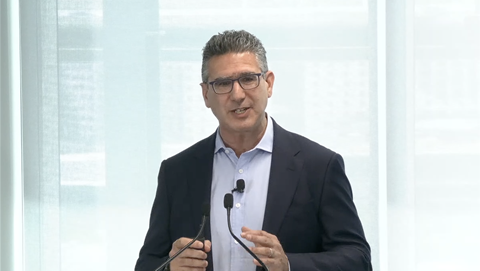
"The current economic climate is negatively impacting sales of higher-end devices, and we should expect the smartphone device market to continue to grow but at a slower pace," said Roberta Cozza, principal analyst at Gartner.
"Although leading mobile operators are subsidising more smartphones to reach lower prices, they tie the device to two-year contracts with monthly data plan rates which remain too expensive for the mainstream user."
The figures are bad news for market leader Nokia, which saw sales drop for the first time, down three per cent on last year's figures. The company still shipped 42.4 per cent of the global total, but was hurt by not having a touch-screen phone on the market. The N97 is not due until next year.
Nokia's poor showing also affected Symbian, cutting the market share of the mobile operating system to below 50 per cent for the first time. Gartner estimates that it will continue to decline in popularity.
The figures brought good news for Apple, however, which saw sales rise over 300 per cent, making it the third largest vendor in the market.
Research in Motion also had a good quarter, with sales up over 80 per cent. Gartner said that the BlackBerry Storm handset will boost sales and has the potential to be a major product for the Canadian firm.

_(36).jpg&h=140&w=231&c=1&s=0)


_(28).jpg&h=140&w=231&c=1&s=0)





 iTnews Executive Retreat - Security Leaders Edition
iTnews Executive Retreat - Security Leaders Edition
 iTnews Cloud Covered Breakfast Summit
iTnews Cloud Covered Breakfast Summit
 The 2026 iAwards
The 2026 iAwards












_(1).jpg&h=140&w=231&c=1&s=0)



